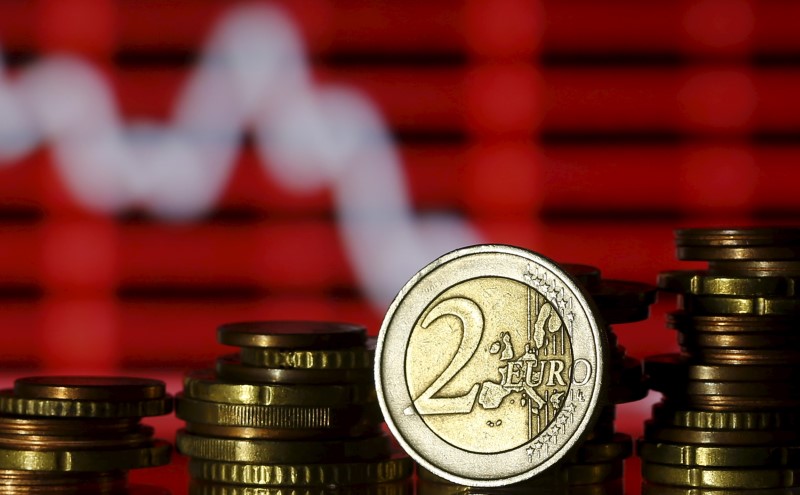By Hideyuki Sano
TOKYO (Reuters) - The euro hit a two-month high versus the dollar and held firm against other major currencies on Monday thanks to strong German business confidence and reduced anxiety about political instability in Europe's biggest economy.
The euro fetched $1.1929
The common currency now faces a test at $1.1965. That level is the 76.4 percent retracement of its decline from a 2 1/2-year peak of $1.2092 touched on Sept 8 to a 3-1/2-month low of $1.1553 set on Nov 7. It has gained 3.2 percent from that low.
The euro rose to 133.24 yen (EURJPY=R), its highest since Nov 16 and it firmed on the British pound to 0.8978 pound (EURGBP=D4), edging to near this month's peak of 0.9014.
The German business confidence index compiled by the Ifo economic institute hit a record high in November, in another sign of strong growth in the euro zone's largest economy.
The upbeat data was followed by positive political developments after German Chancellor Angela Merkel - whose chances for a fourth term were plunged into doubt a week ago when three-way coalition talks with the pro-business Free Democrats (FDP) and Greens collapsed - was handed a political lifeline by the Social Democrats (SDP).
That helped ease worries about political instability in the country as Leaders Merkel's conservative party agreed on Sunday to pursue a "grand coalition" with the SPD.
In contrast, the dollar lacked momentum of its own as persistently low inflation is seen as undermining the case for the Federal Reserve's rate hikes.
Market players are looking to the Congressional hearing on Fed Chair nominee Jerome Powell on Tuesday.
President Donald Trump's tax reform plan is also in focus. Trump is due to meet Senate Republicans on Tuesday to discuss the party's efforts to pass tax reform legislation.
"First the Republicans have to agree on a plan between the Senate and the House of Representatives. Then that plan would need to be approved by the both chambers. That would need considerable time and effort," said Shin Kadota, senior strategist at Barclays (LON:BARC).
The dollar index (DXY) (=USD) stood flat at 92.801, near two-month low of 92.675 touched on Friday.
Sterling fetched $1.3325
Against the yen, the dollar slipped 0.15 percent to 111.35 yen
Because the yen is often used as a funding currency for investment in riskier assets, it tends to be bought back when risk sentiment sours.
The yen's gains were more noticeable against the risk-sensitive Australian dollar, which fell 0.4 percent against the yen to 84.60 yen (AUDJPY=R), threatening to fall below a five-month low of 84.51 touched a week ago.
The Aussie dollar shed 0.25 percent against the U.S. dollar to $0.7600
Elsewhere, the South African rand bounced back 0.6 percent to 14.070 to the dollar
S&P Global Ratings downgraded South African local currency debt to "junk" territory on Friday, citing a further deterioration in the country's economic outlook and public finances, sending the rand tumbling.

But Moody's decision to only place South Africa on review for a downgrade, rather than a cut, cushioned the blow, helping the rand to recoup some of Friday's losses.